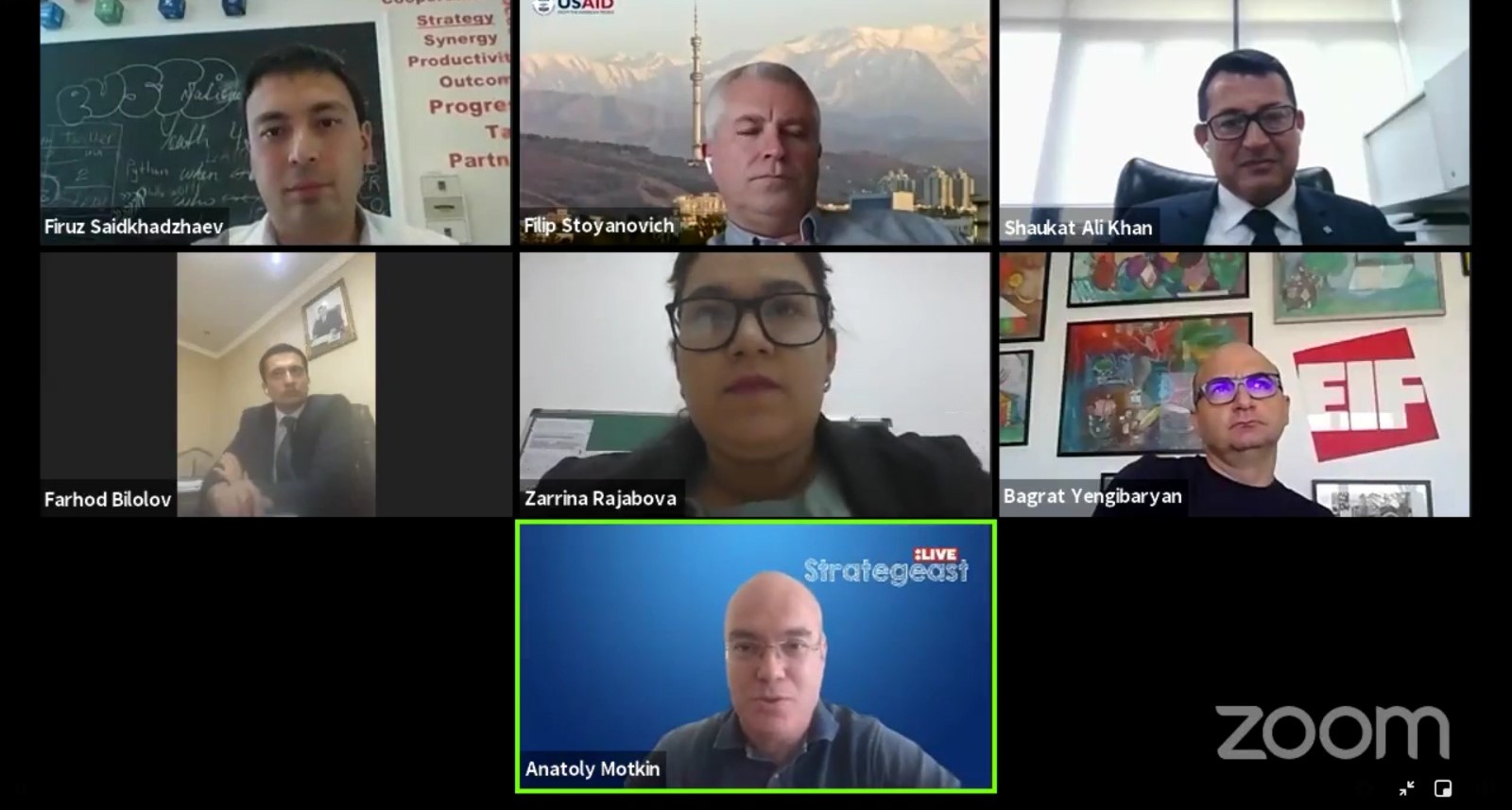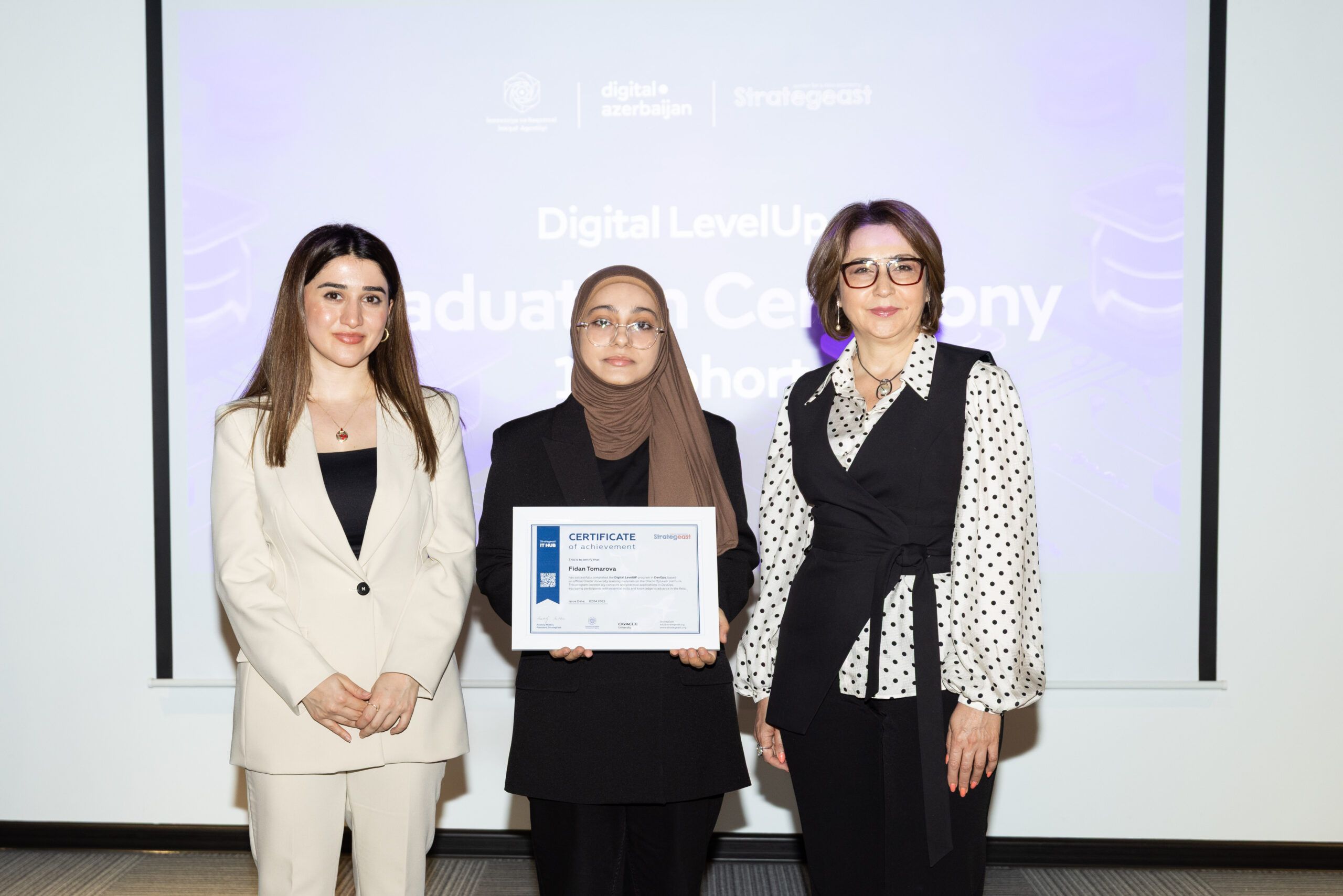The Ministry of Industry and New Technologies of the Republic of Tajikistan announced the creation of a Digitalization Council to create the first High-Tech Park in the country. During the several panel discussions co-organized by StrategEast and the University of Central Asia, international experts came to the unanimous opinion that the creation of High-Tech Park can make a great contribution to the economic development of Tajikistan, the transition from an industrial to a knowledge economy.
However, in addition to economic growth, the IT park can also contribute to the inclusiveness of economic development. How to make sure that the creation of a new IT park does not lead to an increase in the gap between the rich and the poor, between urban and rural areas, but also decrease those gaps, making sure gender equality and disability inclusion? These issues were raised at the panel discussion “How to be inclusive when creating an IT park in Tajikistan” on June 23, 2021.
In his welcome speech Farhod Bilolzoda, Deputy Minister of Industry and New Technologies of the Republic of Tajikistan thanked all partners who shared their experience in the creation of the IT industry and named first successes of Tajikistan in this path: “We have already defined our goals together with distinguished partners. Secondly, we have begun general coordination of the process of IT sector development in the country. Thirdly, we have defined the main mechanisms of successful implementation of digital policy in Tajikistan. Now we have very little left to be done to implement our plans. The most important thing today is not to stop and keep achieving new goals.”
Filip Stoyanovich, Chief of Party, USAID’s Future Growth Initiative (FGI) for Central Asia introduced the audience with the main projects of the initiative: “Our project covers five Central Asian countries. We do have components concerning digital, IT, e-commerce. We work with Alif Academy, we work on software skills development for young people from Tajikistan, and we begin looking to the e-commerce area development for SMEs. These are examples of what we should be doing in general with donors and agencies coordination, public-private dialogue. A key to success in what we are doing is how we cooperate.”
Bagrat Yengibaryan, Director of Enterprise Incubator Foundation, Armenia shared Armenia’s experience in launching inclusive IT parks. “In Armenia, we have three formats similar to IT parks. First – park or cities, which has a large environment with a specific objectives. Second – innovation centers, relatively small ones, typically covering one building, with specific target and specific partnership. Third, specific partnerships with multinationals in the format of technological centers. Our technological centers operate not only in Yerevan, but also in Gyumri and Vanadzor. It is very important that we have created hubs for the IT industry not only in the capital, but also in two other major cities.”
Zarrina Rajabova, Director of Alif Academy stressed the importance of working with residents of remote areas: “We have to go to every district. We must teach the residents of the regions how to learn IT specialties. We must open small spaces where young people can gather and learn, starting with the simplest things, starting with digital literacy. Teach young people to use a computer and learn online. This should be the starting point for our work in regions remote from Dushanbe. ”
“The task of such organization as ours in the creation of an IT industry in Tajikistan is to work not only within the country. An equally important task is to advocate for Tajikistani IT industry in other countries, “says Anatoly Motkin, President of StrategEast. “When I talk about advocacy, I am not only talking about relationships with governments, with representatives of the global IT industry, but also with those who can ensure the diversity of the industry. Who can attract young women to the industry, inspire youth to open start-ups, provide equal opportunities to ethnic minorities in the Eurasian IT industry.”
Firuz Saidkhadzhaev, Project Manager / Economic Development Advisor, United Nations Development Programme admitted that UNDP since 2016 has been actively involved in startup ecosystem development in Tajikistan. “During this period we have identified IT as one of the key sectors for the economic development in the country, as nearly 50% of the population in Tajikistan are young people. Thus, we have been partnering with a number of technology companies in the country, as well as educational centers. We identified that an IT park can be a successful model for the development of IT skills. Currently, we are working with the Ministry of Industry and New Technologies on creating favorable legislation for the IT sector.”
Shaukat Ali Khan, CIO at the Aga Khan University and Hospitals and Farhod Bilolzoda, Deputy Minister of Industry and New Technologies of the Republic of Tajikistan moderated the discussion.
The panel discussion was co-organized by StrategEast together with the University of Central Asia, USAID’s Future Growth Initiative, the Ministry of Industry and New Technologies of the Republic of Tajikistan, and the Aga Khan University.




